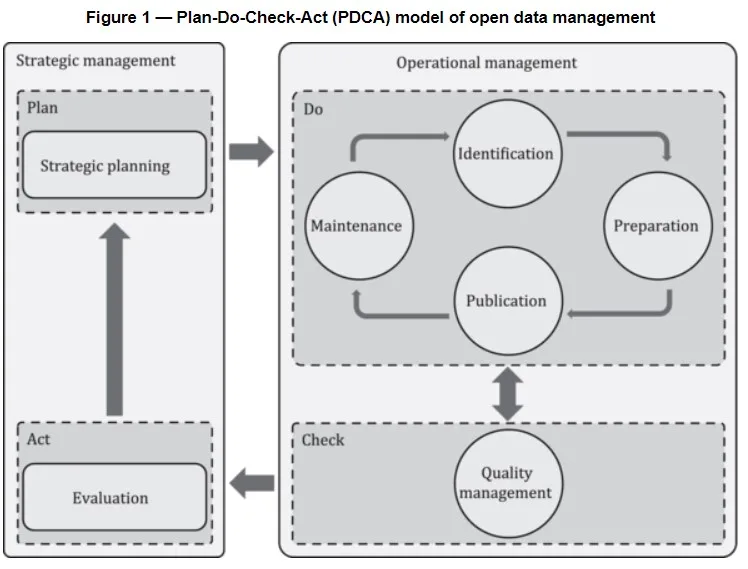Published: 01/10/2024
This standard, published in 2022, provides requirements and recommendations for creating and managing an open data repository essential for building smart cities and communities.
The transparency of information plays a vital role in collecting and processing large-scale public service data and in developing policies to address citizens’ concerns. Today, Ulaanbaatar residents are criticizing the city for spending money on curb replacement while damaging pedestrian walkways, leaving them unrepaired, and exacerbating traffic congestion by closing roads amidst increasing vehicle flow.
As one of the requirements of sustainable city management, this standard emphasizes the importance of making all data, justifications, research, and plans related to decisions open, transparent, and accessible to ordinary citizens, professional organizations, and stakeholders. It states that it is essential to utilize technological advancements in civil engineering infrastructure and to ensure that decisions made effectively address social issues. In other words, cities must have digital platforms where up-to-date information is transparently shared, research and rationale are disclosed prior to decision-making, and civil society organizations and interested individuals have the opportunity to provide feedback on plans and budgets.
Public sector data, records, and IT systems must be accessible to citizens free of charge. Open databases, a key element of smart city management, should present real-time data that can be analyzed and visualized. This enables oversight of whether issues like urban congestion and road maintenance are being addressed at the right time using appropriate methods. It also allows predictive modeling using various smart calculation tools to foresee where traffic will build up if a certain road is closed or whether solving one social problem might worsen another.
According to ISO 37101, building a sustainable city and smart society involves inclusive participation from all stakeholders: citizens, professional institutions, civil society, NGOs, universities, and students. They should be able to contribute to, review, and monitor the planning and budgeting of upcoming years. Involving businesses in designing responsible, transparent, disaster-resilient, intelligent, and sustainable solutions not only provides citizens with a sense of co-governing their city but also gives them real agency in decision-making. This standard can be applicable even in Mongolia’s governance system, where city management is carried out through local citizen representatives’ councils.

This image shows that in the management standard’s PDCA (Plan–Do–Check–Act) cycle, the “Plan” and “Act” phases belong to strategic management. Therefore, public participation and transparency are crucial in these phases. Meanwhile, the Executive Team is responsible only for the “Do” (Implementation) and “Check” (Quality management) phases. In Ulaanbaatar, the public is often not involved in these management phases, and strategic decisions are criticized for being reactive to social media pressures rather than based on solid planning. This situation reflects public sentiment questioning whether city authorities are capable of making long-term, research-based strategic decisions and why citizens are not being included in the process.
- P (Plan): To properly implement this stage, a strategic planning process should involve end-users such as residents of specific districts and subdistricts, daily road users, various stakeholders with mutual interests, and social groups with oversight roles. These groups should be consulted for input on problems and solutions.
- D (Do): This stage includes identifying, preparing, publishing, and maintaining open data based on pre-defined goals and objectives. The types, amounts, locations, and accessibility of data should be clearly defined to avoid uncertainty or frustration among citizens.
- C (Check): This stage ensures that operations comply with established work instructions, methodologies, procedures, legal and contractual requirements. It involves quality management in accordance with international standards, encourages multi-stakeholder participation, maintains transparency, and promotes collaborative, results-oriented efforts.
- A (Act): In this stage, data analysis is conducted to evaluate whether the intended openness and stakeholder involvement were achieved across all phases. If improvements are identified, updates and revisions should be made to the plan. An assessment is done to determine if implemented actions addressed specific societal problems, and if not, what factors were missed. Based on this, a comprehensive improvement plan is developed to enhance both data management and operational processes, including workflows, timelines, responsibilities, regulations, and standards.
A related substandard for financial services is ISO/TR 21797:2019. For sustainable community development, ISO 37101 includes requirements and guidance for development management systems.
Chapter 4 of the ISO 37110 standard introduces the purpose and characteristics of open data, while Chapter 5 presents the general management model, strategic management, and operational management model.
It is recommended that this standard be adopted as a mandatory requirement in city management. Globally, smart city management, sustainable urban governance, and sustainable social development are being successfully implemented through standardized methodologies.
